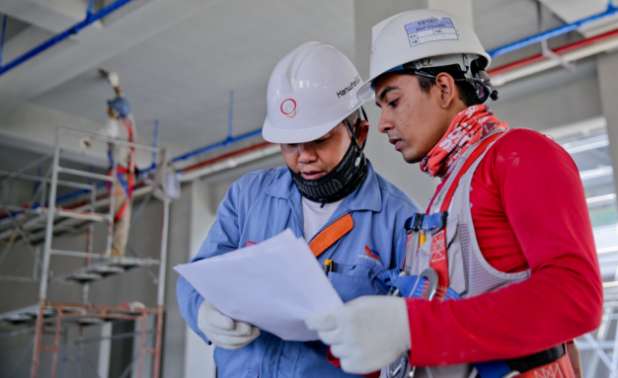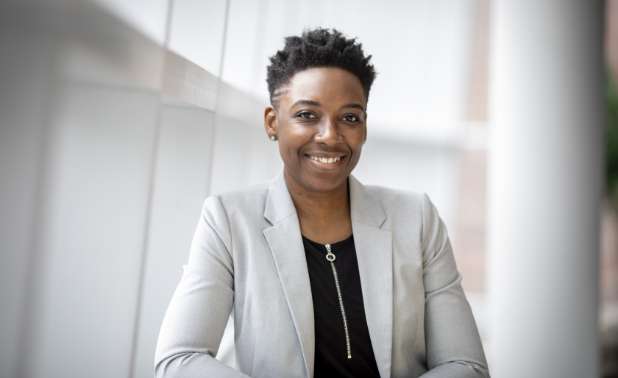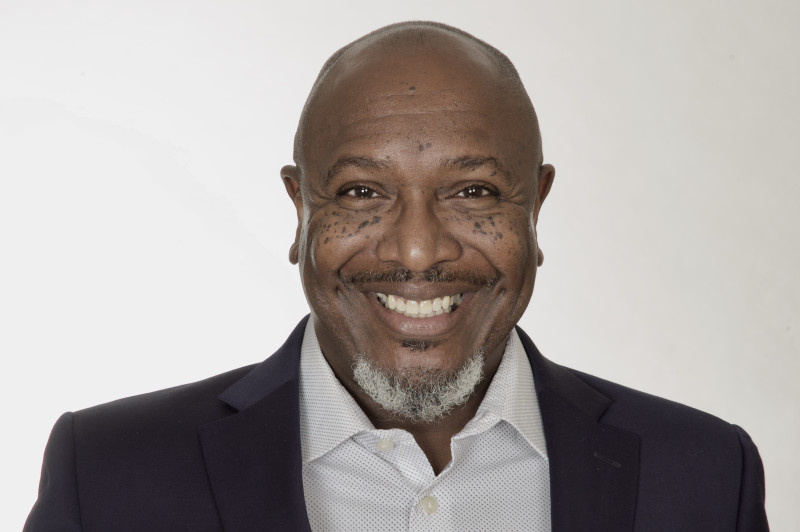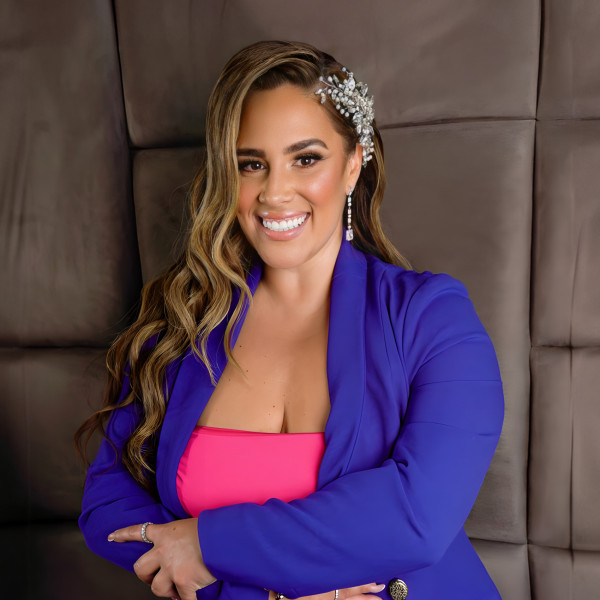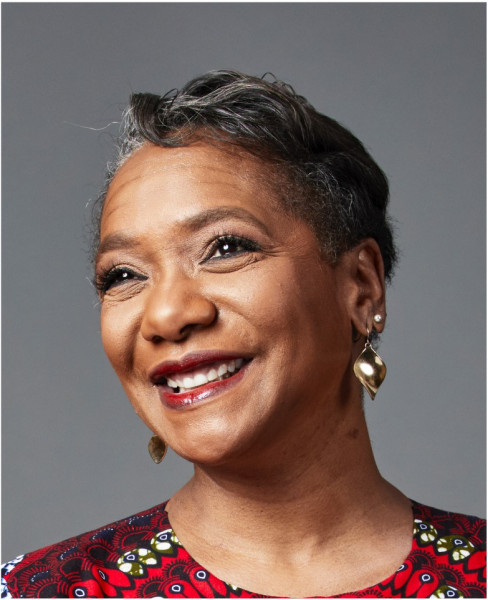Kamela:
Welcome to But First, People, a podcast brought to you by Pride Global. I’m your host, Kamela Forbes,
the global head of diversity, equity, and inclusion here at Pride Global. Along with my colleagues, on
this podcast, we’ll dive into everything from diversity, equity, and inclusion, to service and staffing in
the human capital industry, and so much more. Join us as we sit down with industry experts to hear
their stories.
Kamela:
Welcome to But First, People. On this episode, I’m excited to announce that we have the pleasure of
having Dr. Judith Fiona Joseph. Dr. Judith is a board-certified psychiatrist and also a clinical assistant
professor of child and adolescent psychiatry at NYU Langone Medical Center. She’s also the
chairwoman of the Women in Medicine Initiative for Columbia University Vagelos College of
Physicians and Surgeons. Dr. J, as she’s affectionately called, is an expert on various media platforms
and has made national television appearances on many shows, including The Dr. Oz Show. She
currently teaches medical media courses to physicians and medical students at Columbia and New
York University. We’re so excited to get started, so let’s go ahead and talk to Dr. J!
Kamela:
Let’s start up by letting me tell you this—here at Pride Global we have a tradition. Any time somebody
starts at Pride Global, we have a Monday Morning Meeting, all-hands meeting, everybody, our entire
global team is on this call—every new employee that starts, their first day, they get to sing in front of
the entire organization, just about 30 seconds or so of a song. But I guess the goal behind that is really
to let people not be afraid to, whatever, make mistakes, and just know that this is a family, and we’re
here to support you whether you sound great or you should keep your day job. Whatever it is, we just
like people to throw their inhibitions to the wind, dive in, and know that we’re a whole team and family
here to support. So, I just thought, in keeping with that tradition, it would be great to have all of my
podcast guests sing a little song, relax, loosen up a little bit, because we’re about to get real here. But
that said, what song are you going to sing for us today?
Dr. Judith:
So my daughter loves this song, “Cheek to Cheek” by Frank Sinatra. So I could start with that one. It
also has a lot of themes that go along the line of mental health and happiness.
Kamela:
Oh great! All right. Well when you’re ready, take it away!
Dr. Judith:
(singing).
Kamela:
Wait, how old is your daughter again?
Dr. Judith:
She’s five.
Kamela:
Five and knows Frank Sinatra songs like that?!
Dr. Judith:
She’s a New Yorker.
Kamela:
Well, what happened to “Baby Shark” or whatever?
Dr. Judith:
Unfortunately, she’s high maintenance.
Kamela:
Well, I love that song and you did a great job singing it, so kudos to your daughter, Zara!
Dr. Judith:
Thank you.
Kamela:
All right. So let’s dive in here. So, we’re sitting here with Dr. Judith Joseph today, and I want to
know—what caused you to get into this line of work, and what’s your passion? What is your “why” for
why you do what you do?
Dr. Judith:
That’s a great question, because like many people that I run into and that I meet in sessions and
clients, I didn’t start off on this path.
Initially I wanted to be the traditional doctor. I went to Columbia Medical School thinking I was going
to be a neurosurgeon and did a lot of research. And I found that being in the operating room, in a cold,
sterile, quiet environment, under a sheet, looking through a hole at someone’s brain was just not that
cool. However, I do like the brain, and I really do find that human behavior is fascinating.
So, psychiatry is a field that really called and spoke to me—and seeing people express pain in so many
different ways is just fascinating. And I’m lucky in that people come to me and they share things with
me and I hold their secrets and they trust me. It’s really a job that I never get tired of. I’m excited going
to work every day. Mental health is something we all have and we all need to take care of it.
Kamela:
Oh, and talking about mental health, as we’re recording this session now, the Omicron variant is
kicking up and cases in New York are rising, and I’m sure just across the country, and I guess that’s the
topic that’s on everybody’s mind, so let’s start with that. Every time the trends start, we think we’re
getting a little bit better, and then something else pops up and the cases start surging. So, when you
add to that the fact that most offices were starting, at least, to gear up to return to office and have
some policy of some sort, whether that’s a hybrid model—you have employees starting to experience
coronavirus anxiety. So, how do you see the impacts of COVID affecting the workplace, and what are
some tips that you might suggest for managing this anxiety?
Dr. Judith:
You know, as a mental health expert, I really had to... And my colleagues and I, we really had to go to
other countries, data from other countries in Asia, countries in Europe to get this expertise—because
unlike us, they’ve had many pandemics over the past several decades.
The data coming out of those countries really shows that the majority of people experience intense
anxiety, irritability, this fear of the unknown, poor sleep, and so forth. Anger and rage. However, the
majority of us will be okay. Most of us will be resilient enough to get through this. Now there are some
vulnerable populations, people who are in healthcare, for example, elderly people, people with
cognitive or developmental delays or disabilities. They tend to have challenges that the majority of us
will not have.
So, we know that ultimately, we’ll be okay. However, it doesn’t feel like that right now because of the
economic uncertainty, the unknowns, the constant fluctuations of schools opening and closing. We
are human beings—we need to know what’s going to happen. We have true fears and anxiety, so it’s
okay to feel this way. And I think the first step is really naming that feeling and validating it.
Kamela:
I like that, naming the feeling. And what would you say to your patients about that? How do you
recommend to name the way you feel? I think it’s so hard to really pinpoint, sometimes, to people how
they’re actually feeling.
Dr. Judith:
A lot of my patients, especially the people who identify as people of color, they’ll say to me, "I never
thought that I would actually say, ’I have anxiety,’ or, ’I feel depressed.’" So there’s a lot of power in
knowing what you’re feeling. Sometimes we tend to skirt around it. We’ll say, "I’m tired," or, "I feel sick,"
or, "I just need to rest." However, when you could put a name to what you’re experiencing, then you
could do something about it. It’s not confusing, right?
I mentioned earlier that human beings fear the unknown. So, not understanding what’s happening in
your body and your brain and your emotions, that in itself is anxiety provoking. Putting a name to how
you’re feeling truly powerful, and it’s really the first step. It’s validating.
Kamela:
And how do you see—or maybe recommend—that happening in the workplace? It might be great if
you’re talking to a therapist, but what about just in the workplace? What kind of opportunities do you
see for companies to be able to create opportunities for their employees to actually put a name to it so
that they could start addressing it?
Dr. Judith:
You know, it’s a culture of really valuing mental health and emotional wellbeing. And for some
companies that I work with, they’ve actually incorporated it into their culture. So they may have
certain get togethers, town hall meetings where they actually prioritize mental wellness and setting
appropriate boundaries in terms of workplace, work-life, home-life balance.
There’s something that I call the “five Vs to thriving,” and it’s really a way of living. So, the first is
validating how you’re feeling.
The second is venting, talking about it, having a space. So companies that can create spaces for
people to talk about these things and to just hold these emotions, I think they tend to do better in
terms of their employee wellbeing.
And then values. What do your employees value? Some people really like it when companies give
back or they allow employees to really be a part of initiatives that help the greater good. So what are
the values? Or it could be your family. Companies that allow time for family events or time for family
leave.
Then the fourth one is vitals. Are you sleeping enough? Are you getting movement? Some companies
really incorporate exercise life, classes and so forth—nutrition, ways to feed the brain.
And then vision is the last “V.” What are we looking forward to? What is the goal? Having that on a
calendar, having events to look forward to.
So, I think that when you have a culture of having these key, core components, people are happier and
they’re more balanced—and they bring that at home as well, so their families are happier with them.
Kamela:
That’s a lot of really good advice. And free, my listeners!
Well, when I think about it, the reality is that COVID is here to stay. We just have to get adjusted to this
new normal. So what suggestions do you have for coping with this new norm?
Dr. Judith:
It is a new norm. And I think that a part of disaster psychiatry—because a pandemic is a disaster, and
disaster mental health is preparedness. For a lot of people, not knowing what is happening next is
really the worst part of this whole thing. So I think that having a disaster plan or having an emotional
plan is helpful. We don’t know what’s going to happen. We don’t know how many variants there’ll be.
If we have plan to address it and to prevent crises, then I think that people feel more safe and secure.
It’s similar to the retirement fund. You’re putting money in there. You’re not sure what’s going to
happen in the future or when you’re going to need it, but having it there gives you that sense of
security.
Kamela:
Well that’s a great analogy. Think about, just in addition to employees having to deal with the stresses
of COVID, there’s the regular job burnout stress that can affect one’s physical and mental health. What
would you say are some of the symptoms that our listeners should look out for, and what are some of
the things one might do to avoid burnout and set realistic expectations for 2022 and beyond?
Dr. Judith:
I think that burnout is something that’s easy to fall into, especially when the world is so chaotic, and
sometimes people just bury themselves at work because it’s something that they feel like they can
control. So burnout isn’t necessarily something that comes from the employer. Sometimes we take it
on ourselves to work too hard because it’s something that we have within our power.
I think that really allowing time in the day to sit and reflect—it doesn’t have to be going to a fancy
doctor’s appointment—it can be something as simple as taking five minutes in the morning to just do
some deep breathing, to really turn everything off, and to do some insightful digging into who you
are. Giving you that space just to reflect allows you to just feel more centered.
Something that is also free, since you like free, is sipping water. I see that you have your thermos here
with your name on it. Drinking water is self-care, and people don’t think about this, but in our research
we know that anxiety leads to dry mouth, it leads to people not eating as much.
So something as simple as saying, "I’m going to drink water throughout the day and takes sips of this thermos until it’s done." That’s self-care.
Putting things in the workplace that have life. A lot of times, especially in New York City, we don’t have plants at the desk. There are plants that don’t require a lot of sunlight and research shows us that looking at something that’s living in our workplace or work space or work environment inspires us, it also cleans the air.
It’s something, again, it’s simple and it’s self-care. There are a things that you can do to augment your day just to increase your points of joy—and studies show us that when you increase points of joy throughout the day, it really does improve your overall wellbeing.
Kamela:
Wow, some great little points. I didn’t even know that I was doing that! I did make that a goal to finish two thermoses of water per day, so, little did I know those were little points of joy! I’m well on my way, at least. You talk about work-life balance, and that’s probably a little more elusive now, especially in these work-from-home times. How important would you say that work-life balance is around creating boundaries to protect your mental health?
Dr. Judith:
I think that technology is great. It’s given people access to resources they otherwise would not have had. It allows us to work from home so that we’re around our loved ones more often. At the same time, too much access can sometimes be detrimental. So, I like to suggest to my clients that they take a digital diet and really, you’re balancing the time that you have online with the time that you have offline, with your family, with your loved ones.
You may just put all the devices in a bin and make it part of the culture or the home life culture that you’re just not going to look at devices. You’re just going to put everything away—laptop, phones, work phone. Pager, if you’re a doctor. And you’re really going to give yourself that space to have real-life interactions, because part of our fatigue is being online and being too connected to digital media. So there, again, a little lifehack that you can do to improve your overall wellbeing that’s free.
Kamela:
Overall wellbeing. I also have recently heard something about workplace PTSD. Can you speak a little bit to that, and is that tied into what we’ve been talking about so far? Or is that a totally different subject altogether?
Dr. Judith:
You know, there are many types of trauma, and with workplace PTSD, it’s kind of a controversial term because the traditional trauma that people think about tends to do with attacks or assaults or combat. However, if you think about it, if something is life-threatening, it’s traumatizing. And for many of us, having our livelihoods threatened is a trauma. So if you’ve ever been in a hostile or toxic work environment, you know that wondering if you’re going to get fired or wondering if you’re going to get that bonus, that can keep you up at night. So, people can experience some of the symptoms of PTSD or trauma from workplace experiences—and this is not just things like sexual harassment or people being biased towards you. It could be something like a pandemic threatening your livelihood. People can experience forms of trauma and trauma reactions when they think that they are not going to have a job or an income.
Kamela:
When you think about that, sometimes you think about adding another layer of complexity to workplace stress and mental health for people of color, who also have to cope with discrimination and have the added burden of an emotional tax, so to speak.
Emotional tax is typically defined as the heightened experience of being treated differently from peers due to race or ethnicity or gender, which triggers adverse effects on health and feelings of isolation, making it difficult to thrive at work. Actually, I saw the other day a Catalyst survey, a survey by Catalyst, that revealed that nearly 60% of people of color have experienced this burden at work. Can you speak a little on this and some wellness tips you would recommend for people of color?
Dr. Judith:
You know, I think that people don’t realize that when you look a certain way or you look different that you’re automatically judged. There are these misconceptions about you, there are these assumptions. And it may not be overt discrimination, however it’s an aggression that is very little, it’s tiny, and it adds up over time, and it’s actually called a microaggression.
People who experience these microaggressions on a daily basis, they have more stress, they have more tension, their body hurts more, their mind hurts more. So I think that validating this experience is really important in terms of what employers can do, because naming it is part of the solution. And I think that a lot of people unknowingly don’t validate it—they don’t understand that it’s happening because it’s not happening to them. So, the first step is acknowledging that this is happening. And I think that for people who are people of color who are experiencing it, again, a lot of times we want to invalidate our own experiences: "Oh, perhaps it’s for this reason this was said to me, or I’m being treated this way." So you have to acknowledge it for yourself.
And again, we talked about those little things that you can do for self-care. A part of that is dressing the way that you want to, expressing your culture through your hair, through your jewelry, and really taking control of your image. And I think that has been very powerful for a lot of people, because it’s something that is subtle, it’s passive. They don’t have to do anything. They don’t have to say anything. They’re just being themselves.
Kamela:
And then how would you say... It’s one thing to identify it for yourself, but how about speaking up for yourself or being able to address somebody that is the microaggressor?
Dr. Judith:
I think that a part of this problem is education. So for many of us, we feel that we’ll be seen as angry or aggressive if we say what’s happening. And I think that people are willing now to listen. I think talking about it is empowering not just for the person experiencing it, but for the people in the environment. I think people want to learn. I think people want to improve, they want to get better. A lot of the New York Times best sellers last year were about racism, how to be an anti-racist. So, I think that we’re at a very unique time in our society where people want to know more about this—I think that we have to speak up as well and educate others.
Kamela:
Yeah, I totally agree. The time is now, and you could see that pendulum shift that’s happening right now of people being more focused on it, so I think it’s a great opportunity to take advantage of that and help to educate. But with all of the pressures that one can experience in the workplace, how important would you say it is for leaders to create psychological safety in the workplace and what are some ways that you think they can do that?
Dr. Judith:
Education is key, and I think it’s difficult when you have workforces are in the thousands, in the hundreds. So you really have to put out content and education that is mandatory. Trainings are really important. Depending on the industry that you’re in, you have to do certain trainings to check boxes. In this case, psychological safety is so valuable.
A couple of years ago, corporations were really focusing on physical health. They were giving incentives to employees to exercise, to go to their doctors, to get their annuals. And the data really showed that did not pay off in the end in terms of productivity and efficiency. And when the pendulum shifts towards mental healthcare and focusing on emotional wellbeing, that actually shows increased productivity, decreased burnout.
I think there’s a real incentive for companies to offer mental health benefits, education—and also space just for mindfulness, for wellness. It doesn’t have to be expensive. You don’t have to go to a doctor. Having a corporation or a culture where mindfulness and meditation and self-care are really a part of the culture improves wellbeing and also improves productivity and efficiency. So, I think that people are starting to realize that this really pays off.
Kamela:
Yeah. And obviously everybody’s always looking like, "What’s the ROI?" So you actually could start to see that. Recently there has been a rise in mental health issues in youth, and the surgeon general even announced this is a mental health crisis, especially for black female teens. Can you give our listeners who might be parents or who have young adults in their lives some advice on how to address this?
Dr. Judith:
I think that the reason that we’re seeing this in particularly black females is that you have to realize that the part of the essential workforce that got hit the hardest were black single mothers. And black single mothers have children who are black.
These children are not just students. They’re not just siblings. They become the babysitter. They become the second mom. Sometimes they’re working a job. So, it’s wonderful that people are talking about mental health and people are talking about it in a way that’s not stigmatizing. At the same time, some of the people that need this healthcare the most aren’t getting it because who’s going to pay for their doctor appointment? Who’s going to allow them to leave their job or leave their sibling or their babysitting—their duties at home—for them to go and get this doctor appointment or to get this treatment?
A lot of the focus nowadays is on the educational system, putting the mental health care in the schools, training the teachers, the counselors—who are already overwhelmed—to really provide the mental health care. Because the students who really need it the most, they don’t have the time. They don’t have the resources. So a lot of the focus is on the schools and supporting these schools.
And one of the organizations that I work with, the charity HealthCorps, they actually put volunteers into the institutions, the schools, to provide wellness tips and mental health care tips. Because the schools are overwhelmed, and these students need it the most.
Kamela:
That’s great information, and so powerful. I just got the chills listening to you and just empathy of understanding what that burden is.
Well, Judith, you have made over a hundred media appearances, written numerous articles, and recorded many podcasts like this, giving a lot of information to listeners, educating physicians and medical students in the public. But what, ultimately, do you want your legacy to be?
Dr. Judith:
I think that when you have a platform and you bring about awareness about something that used to be so taboo, you reach a lot of people. I started off telling you that I wanted to be a neurosurgeon. Neurosurgeries are about 10 to 18 hours long, and you’re working on one brain. When you’re talking about mental health, and issues surrounding mental health and tips and challenges and so forth, you’re speaking to potentially millions of people. So you’re changing potentially millions of brains, right? So I think that for me is truly inspiring and motivating—and I told you I’m excited to go to work every day, and that’s why.
Kamela:
Oh yeah—millions of brains and millions of lives! That’s amazing. Well, you’re doing a great job. You’re still here, but you are writing your legacy as we speak, so I would say thank you for joining us today, for all of the advice that you’ve given our listeners. I mean, it’s free advice that we didn’t even have to have a full session with Dr. Judith to take advantage of! Thank you again for your time and all of your expertise.
Dr. Judith:
Thank you for having me. It’s a pleasure.
Kamela:
Dr. J, thank you so much for joining us on But First, People. I’m positive your insights will help inspire our listeners. If any of you have any questions for Dr. Judith or myself, please feel free to tweet us @PrideGlobal with the hashtag, #butfirstpeople, or you can email us at butfirstpeople@prideglobal.com. Of course, don’t forget to like, share, rate, and subscribe to our podcast.
Have a wonderful day and see you next time on But First, People!




